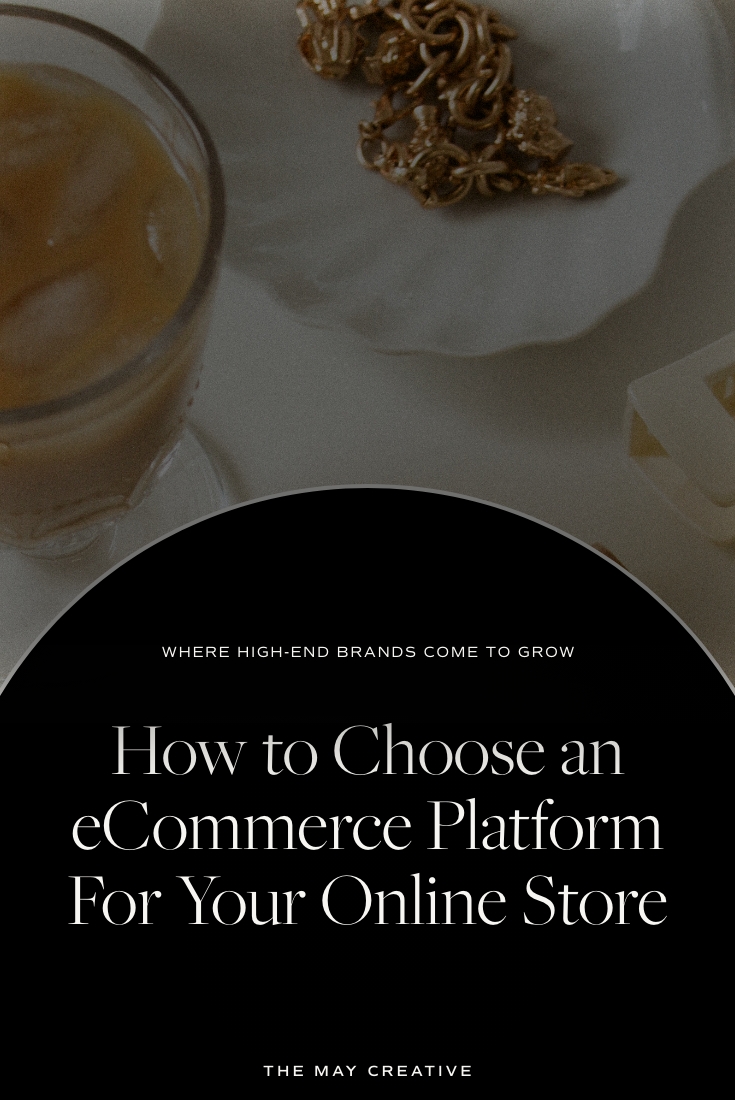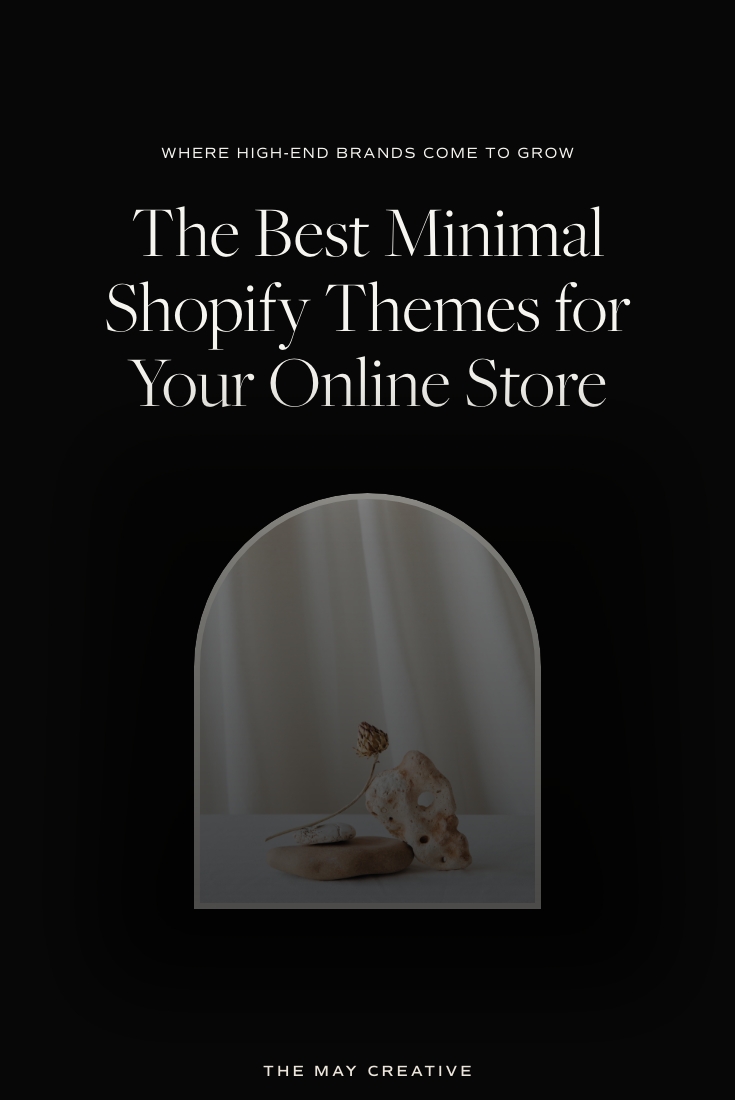Have you been scouring through information, trying to decide how to choose an eCommerce platform for your online store? Not only do you have fabulous products, but you want to make sure your customers are having a great experience that feels cohesive and seamless.
Well, there are website platforms where you can sell your products and my goal is to help you figure out what you need to know before deciding on which eCommerce platform is the best.
“In 2022 eCommerce sales are projected to grow to 5.4 trillion US dollars.” – Source
As an eCommerce business owner, your needs will be more intricate as your customers will often have more needs than a simple online store. From personalization to omni-shopping, ensuring you are using suitable systems will go a long way in maintaining excellent customer relationships.
To begin, it’s important to know your goals.
Have Clear Website Goals
Have you ever started doing something as a business owner without a clear goal in mind? For example, maybe you tried a marketing tactic because you saw other people get amazing results, and you wanted to achieve the same.
Then, with the information you had gained so far, you went and just implemented what you learned. But there was a problem, you didn’t take the time to understand the impact that marketing tactic would have on your business. Possibly resulting in less than stellar results.
Your website is no different. Before deciding what eCommerce platform to sell your products, you must be clear about your goals. Not just for right now but also for the long term as your business grows and expands.
Here are some things to consider:
- What type of functionality will you need to run your business? Think about any subscriptions, curbside pickup, and other necessary integrations.
- Will you need an easy way to manage access for your team?
- What about managing technical concerns and issues? What level of support will you need?
- Can the platform support the volume of business you do? Are you generating high-volume sales?
- How easy will it be to migrate? (In case you need to move your online store)
Knowing this information will go a long way in helping you to determine which website platform will best suit your needs.
Once you have identified your website goals, it’s time to take your list of needs and research some platforms that will support your business.
Researching eCommerce Platforms
Most website platforms today support eCommerce in some form or fashion. Making it overwhelming to decide which eCommerce platform to choose. You’ll need to not only prioritize your needs but also the needs of your customers.
Online shoppers want a fabulous buying experience, whether in-store or online. For example, if you also have a brick-and-mortar location. It will be important that your online store connects to your in-store system so that your customers can go from online to in-store or vice versa. In the eCommerce space, we call this call an omni-channel experience.
Omni-channel experiences reduce the friction in the sales process so customers have a smoother transition between computer devices and in-store shopping.
Modern consumers expect that elements of your business should be fluid and have a seamless connection. Otherwise, as a business owner, you risk losing a potential customer.
Knowing this means you should look at what platforms can help you create a seamless experience.
Just because a platform has eCommerce capabilities doesn’t mean it will be a great fit.
Things to Look For In An eCommerce Platform
When researching an eCommerce platform, examine how much support they provide to their eCommerce business customers.
Some things to look for are:
- Do they only focus on eCommerce businesses?
- How do they handle support for eCommerce businesses?
- How easily can you access your customer data?
- Do they support the type of products you sell?
- Do they offer payment processors that your business and origin country supports?
- Does the platform support international customers?
Dive into any specific features and functionality you may need. Especially if you sell regulated products, so you can make the best choice for your business.
Why I Recommend Shopify For Product-based Businesses
Shopify is a great tool to help you run your business if you primarily sell products. Mainly direct to consumer or DTC brands. Shopify is dedicated to helping eCommerce businesses run more operationally efficiently and is constantly improving how online store owners run their businesses.
When you work with a company focusing on eCommerce, they can adjust their tools to fit your business. It also means you get exclusive benefits that help you to enhance your customer experience and overall business further. Plus, they can take your feedback and make improvements because when you win, they win.
Personally, I love supporting businesses that help entrepreneurs create their dream lifestyles. We live in a time where we have access to all this technology to make our ideas come to life. Shopify supports visionary leaders in helping them get their products into the hands of their customers.
Now, sometimes, I don’t recommend Shopify for your business. So, let’s dive into those situations.
Why I Don’t Recommend Shopify for Some Businesses
Just because you have products doesn’t mean you automatically need to be on Shopify. Going back to your goals, it’s essential to look at your entire business.
For example, does your business primarily offer other solutions like services but only have a small component of your business dedicated to products?
Or does your business heavily rely on features of certain platforms like WordPress for content creation and you only sell a few products a month?
Another reason Shopify may not be for you right now is that you are still testing out your product idea. Maybe you are trying to find the right product-market fit for your business and you don’t have a steady stream of customers and a consistent marketing strategy to implement.
I say this because some small startups end up setting up their business on Shopify when they haven’t created a solid marketing strategy and feel like they are actually losing money. Because of paying for their Shopify subscription, any apps they add on, and other operational expenses they may have.
So really look at if you are in the right place in your business journey to go all-in on Shopify, as other solutions may be a better fit until you have a solid plan and strategy.
Or make a plan to ensure you have the proper funding to help bring your ideas to fruition.
Consult with an eCommerce Strategist and/or Consultant
My next tip is to consult with an eCommerce strategist or consultant to help you decide what eCommerce platform to choose. Why? Because it can help you save time and money in the long run.
Especially if you are considering moving platforms and you’ve been on your existing platform for a while. When you already have an established business, there is important data that you must keep for your customers and other business data.
You can also work with an eCommerce consultant to help you early in your journey so that you aren’t investing in tools that won’t serve you. That way, you can allocate your investment toward other areas of your business that will make the most impact.
I offer this to business owners who need to clarify their business ideas and vision. So that they can make the next best step. You can learn more about how to reserve a Strategy Session to save you from the overwhelmed by figuring it out alone.
Final Thoughts On How to Choose An eCommerce Platform
Overall, look at your business goals holistically and decide what are the important elements you need to make your business run smoother and elevate your customer’s experience.
When evaluating tools, ensure they will support you and your business. eCommerce can be very intricate, with a lot of moving parts, so having support when things happen is important. Otherwise, you’ll risk your customers not having a great experience.
Are you ready to move to Shopify? Have additional questions on if it’s the right platform for you? Reserve a Strategy Session, and we’ll discuss your unique solution. Or, if you have already decided that Shopify would be the perfect platform for your eCommerce business. Learn more about how we can work together to elevate your Shopify website design experience.






